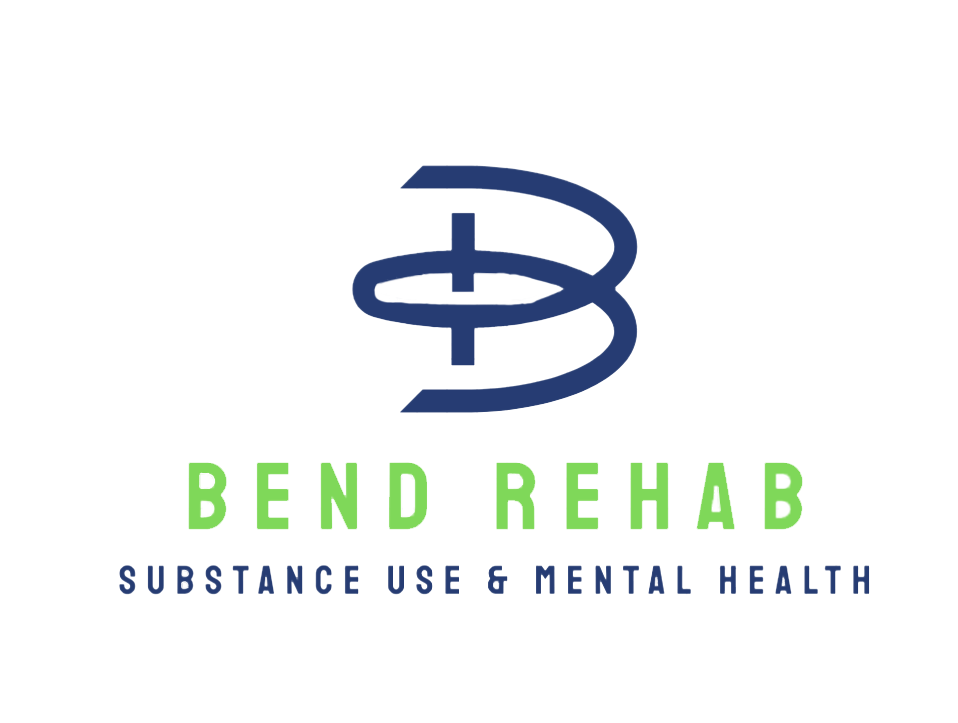What is Case Management?
Case Management in Bend represents a focused, client-centered approach designed to assess, plan, implement, coordinate, monitor, and evaluate the options and services required to meet an individual’s health and human service needs. This holistic process is characterized by advocacy, communication, and resource management to promote quality and cost-effective interventions and outcomes.
In Bend, Case Management is not just about addressing immediate needs but also about planning for the future. Case managers work closely with individuals and their families to develop comprehensive care plans that take into account the person’s health condition, personal goals, and social environment. They serve as a bridge between clients and various healthcare providers, social services, and other resources within the community.
The ultimate goal of Case Management in Bend is to empower individuals to manage their own health and well-being as effectively as possible. This involves educating them about their conditions, connecting them with support networks, and encouraging self-care practices. By focusing on prevention and early intervention strategies, case managers play a crucial role in reducing hospital readmissions and improving overall quality of life for those they serve.
Whether dealing with chronic illness, disability, or recovery from acute conditions, Case Management in Bend is tailored to meet the unique needs of each individual. It’s a collaborative effort that respects the dignity of every person while striving for the most positive outcomes. Through dedication and compassion, case managers make a profound difference in the lives of many individuals across our community.
How Case Management Helps Substance Use
Case management in Bend plays a pivotal role in supporting individuals struggling with substance use, offering a comprehensive approach that emphasizes personalized care and long-term recovery. By addressing not only the physical aspects of addiction but also the psychological, social, and environmental factors, case management creates a multifaceted support system tailored to each individual’s unique needs.
This holistic strategy begins with an in-depth assessment to understand the root causes of addiction for each person. From there, case managers work closely with clients to develop customized treatment plans that incorporate medical care, therapy, support groups, and other resources necessary for recovery. This could include connecting individuals with local rehabilitation centers, arranging for medical treatments such as detoxification or medication-assisted treatment (MAT), and providing access to mental health services to address underlying issues like depression or anxiety.
By providing such comprehensive and personalized support, case management in Bend significantly improves the chances of successful recovery for those battling substance use. It represents a beacon of hope and a path forward for many who have felt overwhelmed by addiction, proving that with the right support system in place, lasting recovery is achievable.
How Case Management Helps Mental Health
Case management in Bend stands as a beacon of hope for individuals struggling with mental health issues. By offering a structured and personalized approach, it bridges the gap between patients and the multitude of services they may need. This method not only provides a roadmap to recovery but also ensures that each individual feels seen, heard, and supported throughout their journey.
The essence of case management lies in its holistic approach. Professionals in this field take into account every aspect of an individual’s life, from medical needs to housing and employment support. This comprehensive strategy is crucial for those dealing with mental health challenges, as it addresses both the symptoms and the root causes of their conditions. By coordinating care across different service providers, case managers in Bend ensures that individuals receive seamless support tailored to their unique situations. Case management in Bend is more than just a way to connect individuals with services; it’s a lifeline for those feeling overwhelmed by their mental health challenges.

Experience Expert Therapy
We provide a range of therapy options to address diverse needs, ensuring everyone receives the care and support they deserve. Our one-on-one therapy sessions offer personalized attention, allowing clients to work closely with a therapist to address their specific challenges, set goals, and pursue personal growth. For those who benefit from shared experiences, our group therapy sessions create a supportive environment to connect with others facing similar struggles, fostering understanding and encouragement. Additionally, we integrate innovative therapies that engage both mind and body, such as cognitive behavioral therapy (CBT) and dialectical behavioral therapy (DBT), offering new pathways for healing and self-expression.

Our Mission
Our Bend Rehab Mission
At Bend Rehab, we focus on more than just addressing addiction symptoms—we strive to heal the entire person, including their mind, body, and spirit. Our holistic approach to addiction treatment makes us stand out among rehabs in Oregon.
FAQ
We've compiled a list of frequently asked questions to provide clarity on the experience and alleviate any remaining fears or anxieties you might have.
A day in addiction rehab is designed to provide a structured and supportive environment focused on physical, mental, and emotional recovery. Mornings typically start early with a healthy breakfast, followed by a schedule of therapy sessions, group activities, and workshops aimed at addressing the underlying causes of addiction. These may include one-on-one counseling, group and family therapy, fitness classes, educational sessions, and recreational activities. Throughout the day, individuals are provided with nutritious meals, time for relaxation, and opportunities for personal growth through journaling or meditation. Evenings often feature peer support meetings or 12-step programs before winding down for the night. Each day is thoughtfully organized to promote a holistic approach to recovery and help individuals build healthier habits and coping strategies.
A detox period generally lasts about five days but can range from three to 10 days. The length of detox varies depending on factors such as the type of substances used, the amount and frequency of use, the duration of use, and the method of administration. These factors help determine the appropriate length of detox for you or your loved one.
When entering addiction treatment, certain items are recommended to support your comfort and well-being. These can include comfortable clothing, personal hygiene products, properly documented prescription medications, and journals or books for reflection. However, some items are prohibited in treatment facilities, such as drugs, alcohol, weapons, or anything that could disrupt the recovery process. It's important to check with your chosen facility beforehand for a detailed list of allowed and restricted items to ensure a smooth transition into treatment.
At Drug Abuse and Addiction, we recognize the strong connection between addiction and mental health challenges. That’s why our treatment centers focus on addressing both addiction and the underlying mental health issues that often accompany it. Our experienced team provides care for conditions such as depression, anxiety, PTSD, and more, taking a holistic approach to recovery that meets both physical and mental health needs. Our admissions team works to match you with the right facility offering comprehensive care tailored to your unique situation. We’re here to guide and support you on your journey to lasting sobriety and better mental health.
Our admissions team at Drug Abuse and Addiction is here to guide you in finding the right treatment center to meet your needs. Choosing a rehab center can feel overwhelming, but we are here to make the process easier. Our compassionate and experienced team understands the complexities of addiction and the importance of personalized care. We take into account your unique circumstances, preferences, and any co-occurring conditions to connect you with a facility that provides customized support. You don’t have to navigate this journey alone – we’re here to support you every step of the way toward lasting recovery.
Seeing someone you care about struggle with addiction can be incredibly difficult and overwhelming. You may feel unsure about how to help them, but the journey starts with an open and honest conversation. Share your concerns, offer your support, and encourage them to seek professional help, while also setting clear boundaries. Researching treatment options and having resources ready can also make a big difference.
It's important to stay patient, understanding, and supportive throughout this process—recovery is a journey that takes time. With the right support and approach, your loved one can work towards a healthier, addiction-free life. Don’t hesitate to reach out to our team at Drug Abuse and Addiction for guidance. We’re here to assist you and your loved one every step of the way on the road to recovery.
No matter how committed you are to your recovery journey or maintaining lifelong sobriety, the risk of relapse is always present. According to the National Institute on Drug Abuse, relapse rates during recovery fall between 40% and 60%. Experiencing a relapse can bring feelings of shame or regret, and you might even consider giving up rather than continuing to fight against the urge to use. While these emotions are natural, they can hinder your path to a drug-free life. Instead, treat relapse as a chance to learn and grow—refine your prevention plan, identify triggers, and understand the reasons behind the setback. This approach can help you rebuild a stronger foundation for recovery.
The first step is determining whether returning to rehab is necessary. If the relapse was an isolated incident and you’re committed to reviewing and adjusting your recovery plan, inpatient treatment might not be required. Inpatient facilities offer hands-on care and consistent monitoring, but if substance use has become a pattern again, it may be essential to reenter a structured program. Warning signs like conversations about substance use, spending time with people who encourage drinking, or using substances to cope suggest a deeper issue that requires immediate attention.
If you do return to treatment after a relapse, the focus should be on successfully transitioning back into daily life. Spending a few months in a sober living environment can be invaluable, as it provides structure and accountability during the critical early stages of recovery. Additionally, setting up an outpatient therapy plan for continued support after rehab can further reduce the risk of relapse.
Begin your journey to recovery and mental wellness today with us at Bend Rehab, where compassionate support and personalized treatment plans pave the way for a healthier, happier you.

Verify Your Insurance With Us
Freeing yourself from Addiction doesn't have to be hard. Take the first Step and begin filling out the form, it's the initial phase in achieving a healthy recovery. We offer the necessary guidance and professional care crucial during the early treatment stages.






